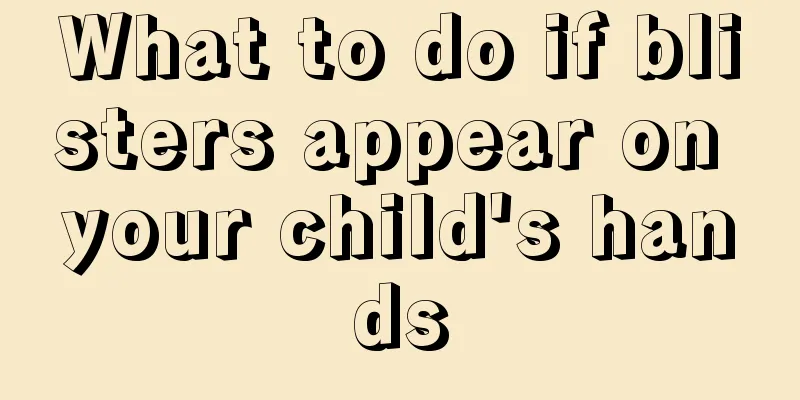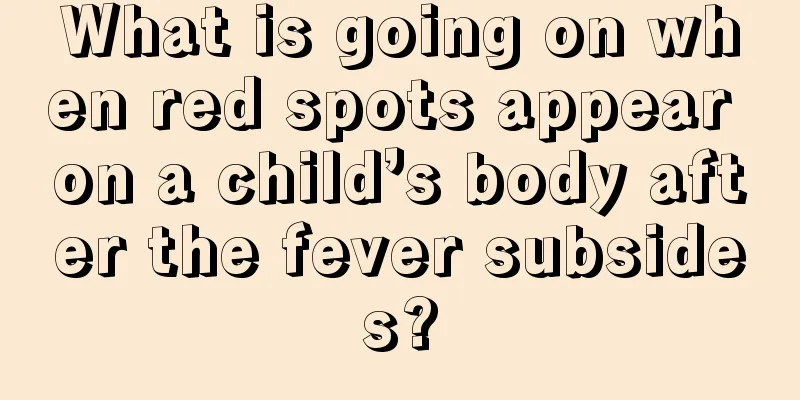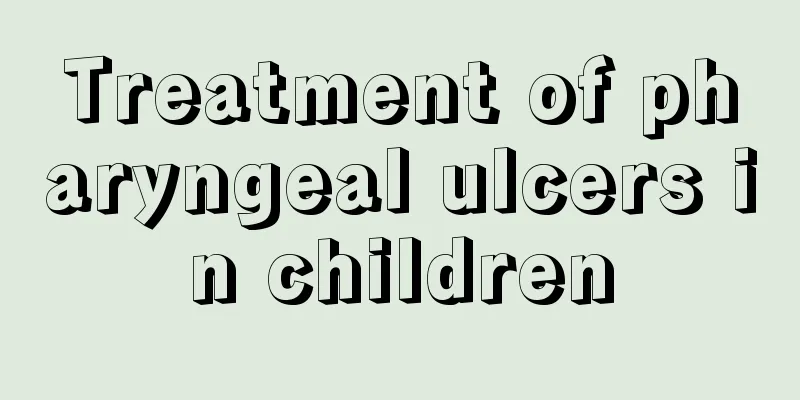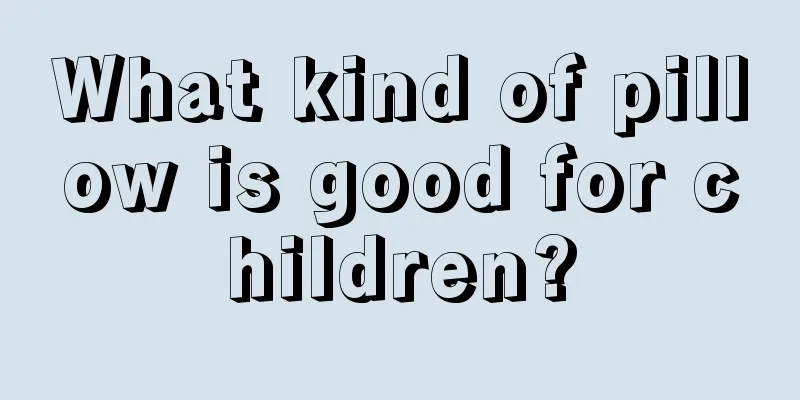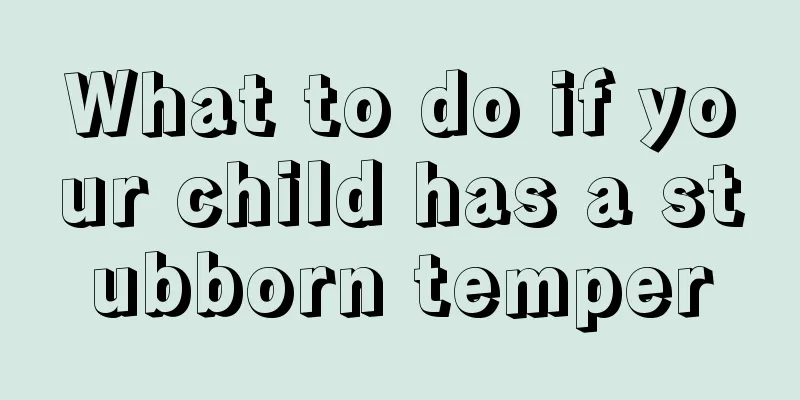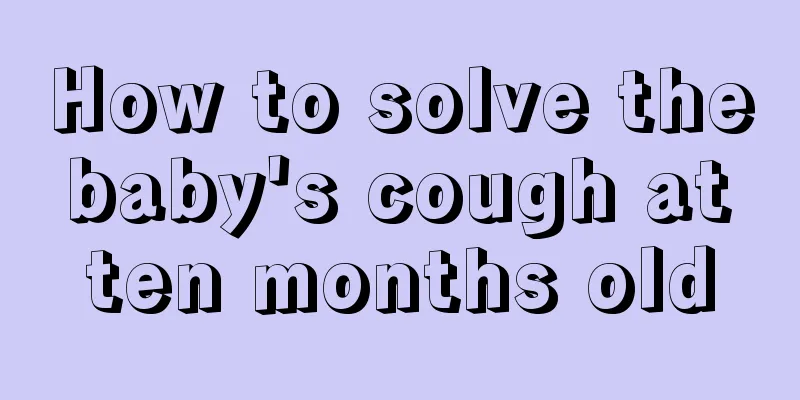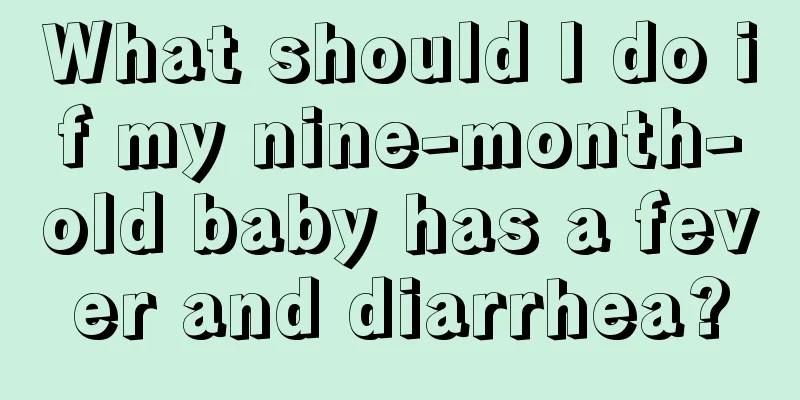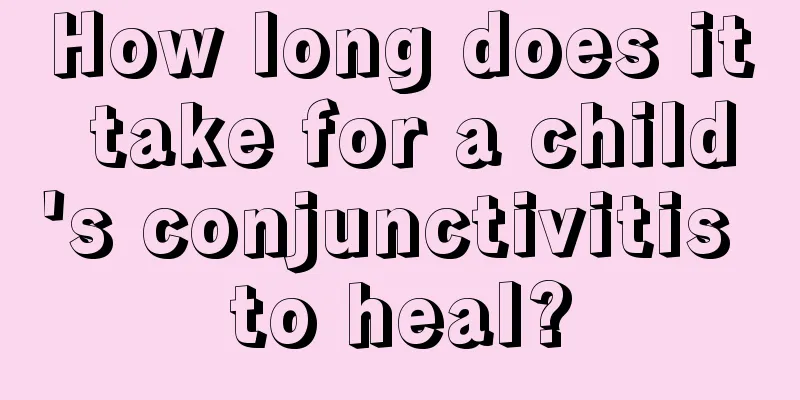Symptoms of baby choking on trachea
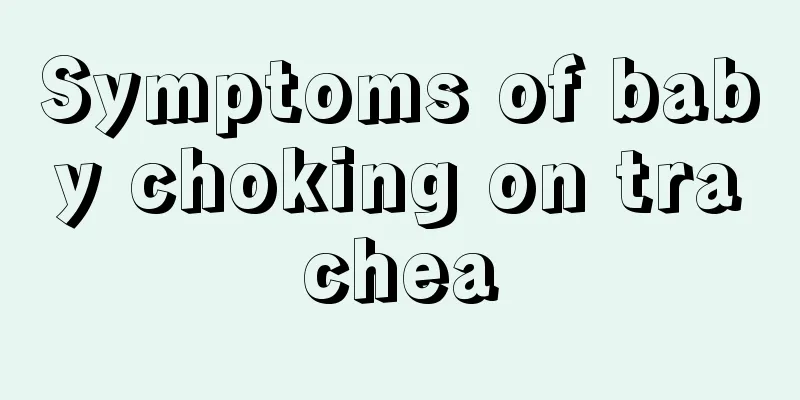
|
Many mothers find that their babies often cough when taking care of them. Especially sometimes, it is easy for the baby to choke on the trachea because of drinking water or eating. However, some mothers do not distinguish between a normal cough and a cough caused by the baby choking the trachea, which causes the baby to feel very uncomfortable. So, do you know what the symptoms are when a baby chokes on his trachea? 1. Symptoms of a baby choking on the trachea: obvious choking cough, sometimes severe coughing, and suffocation. After a baby chokes on the trachea, the symptoms of coughing and breath holding may be very mild or even disappear within a period of time, resulting in a long or short asymptomatic period, making it easy to overlook the diagnosis. Parents should be careful. Plant-based tracheal foreign bodies contain free acids, which have a significant irritating effect on the tracheal mucosa. Beans are foreign objects in the trachea. They swell after absorbing water, making it easy for airway obstruction to occur. The longer the foreign body remains in the airway, the more severe the reaction will be. It initially presents as an irritating cough, followed by symptoms of persistent cough, atelectasis or emphysema due to increased secretions in the trachea and swelling of the tracheal mucosa. Note: As long as the child has a severe cough, parents must find out the cause in time. Some children do not show symptoms until 10 days after the choking cough, at which time they have already developed serious lung disease. 2 Symptoms of baby choking on the trachea: wheezing, hoarseness, and difficulty breathing. The symptoms of baby choking on the trachea include wheezing, hoarseness, and difficulty breathing. Parents can hear the slapping sound of foreign objects hitting the glottis when the child coughs, and they may feel a vibration when placing their hands in front of the larynx and trachea. If the foreign body is large and blocks the trachea or is close to the bulge of the tracheal branch, the ventilation of the main bronchi on both sides may be seriously obstructed, resulting in severe breathing difficulties, even suffocation and death. 3. Symptoms before the baby chokes: Parents can identify in advance if the baby accidentally enters the esophagus due to eating food or playing, so as to avoid choking again. Parents should pay close attention to the baby's condition and deal with it in time: If the baby has a foreign object stuck in the esophagus, the baby will drool constantly, be unable to swallow other things, cough, and have rapid breathing; if the respiratory tract is blocked, the baby will cry and the face will turn black; if the swallowed foreign object is sharp, the mouth may bleed and be injured. If the above symptoms occur, immediately provide home emergency care or seek medical attention. 4 If a baby chokes on the trachea, every second counts. If a baby chokes on the trachea, very little will be coughed up on its own. Therefore, if you suspect or know that there is a foreign body in the trachea, you should go to the hospital for diagnosis and treatment in time. If the situation is urgent or conditions do not permit, emergency rescue measures should be taken and every second counts. In home care, if timely first aid is not provided within 3 to 4 minutes, death is likely to occur. You should immediately lift the child's feet upside down with his head facing down, and pat the child's back with your other hand to shake out the foreign object. At this time, the child will cough violently due to the stimulation of the foreign object, and the airflow can flush the foreign object out of the airway and save the child's life. If the foreign body is not expelled, seek medical treatment promptly. 5 Prevention of tracheal foreign bodies is completely preventable. Parents should pay attention to the following points: (1) Do not feed peanuts, beans, melon seeds, etc. to young children. It is best to remove the melon seeds when eating watermelon. (2) When children have food in their mouths, do not encourage them to cry, laugh, talk or scare them to prevent the food from being inhaled into their trachea. (3) Teach children not to put small toys in their mouths. (4) When a child is vomiting, his head should be tilted to one side to make it easier for him to vomit and avoid it being inhaled into the trachea. (5) If there is a foreign object in the throat, never use your fingers to dig it out, and do not try to force it down by swallowing large pieces of food. Instead, try to induce the person to spit it out. (6) The posture for feeding milk and water should be correct. The baby should not lie flat. The baby should be held up and tilted at a 45° angle. The feeding speed should be slow. The nipple should not be too large. Do not feed the baby when he is too hungry or crying to prevent choking. |
<<: Symptoms of egg allergy in babies
>>: What is the soft bump on the one-year-old baby's head?
Recommend
Can baby's thick eyelids become double eyelids?
The baby's double eyelids and single eyelids ...
What to do if the child's fever does not go down after taking antipyretics
Children's immune systems and body functions ...
What should I do if my baby drools? Teach you a simple way to deal with it
It is a normal physiological phenomenon for babie...
Why do three-month-old babies always stretch hard?
Babies need to slowly adapt to life right after t...
Can cord blood storage really leave hope for the child's life?
Due to the popularity of "Young Doctors"...
Why do children's eyes shed tears?
Tearing tears is very common. Many people are pro...
Treatment of hip synovitis in children
Every child is the apple of the parents' eyes...
What should I do if my child has cervical vertebrae problems during the summer vacation?
The annual summer vacation has arrived and the ch...
What should I do if my child has prickly heat all over his body?
In the summer, because the weather is too hot, ma...
One year old baby food intake
The healthy growth of the baby is very important ...
How to educate children in rebellious period
The most headaches for parents are when their chi...
Why fried chicken causes kidney failure in children
With the improvement of living standards, the foo...
The dangers of enlarged tonsils in children
For children, the immune function is not yet full...
How to treat white dandruff on a child’s head?
Dandruff is no stranger to everyone, because ever...
What causes itchy skin in children?
The thing that many people cannot accept in life ...
